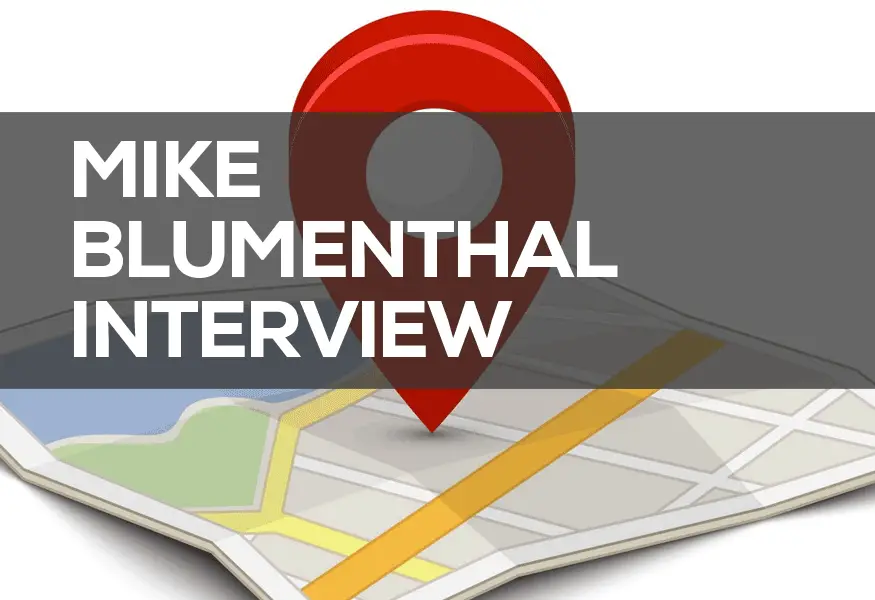Mike Blumenthal runs the hugely popular “Understanding Google Places and Local Search” blog which offers insight into how these Google mapping and location applications can help businesses. In this week’s interview we talk to Mike about his views on the recent Apple Maps launch and what the future might hold for GPS manufacturers over the next few years. If you would like to know more about Mike Blumenthal’s online services then please refer to the links towards the bottom of the interview.
1. Hello Mike, thank you for agreeing to be interviewed by GPS Bites. According to your biography you are widely cited as one of the leading North American experts on local search and are the author of the Understanding Google Places and Local Search blog which is very well respected in the industry. Could you give our readers an introduction to yourself, your background, expertise, and the services that you offer in this niche?
Well I certainly do the latter (write the blog), as to the former (a leading expert) that was written by a friend that is a copywriter and you should judge that for yourself. My word is not very reliable in the matter.
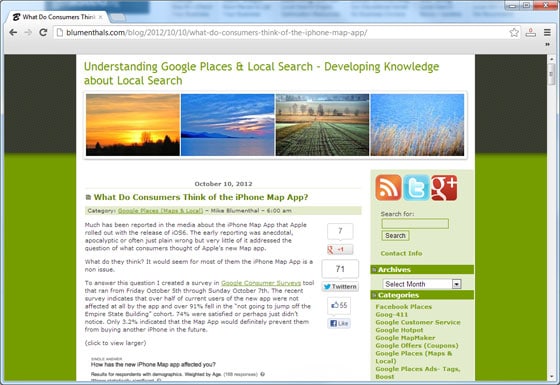
I came from the world of retail. I was sweeping floors in the family business at age 8, showing up for work there late at age 18 and at age 28 started a new computer sales division ( from 1979). So retail was in my blood if not my mind. Like many small businesses we were service oriented, nimble and frequently explored new markets. However we were not nimble enough and by 2001 were outflanked on one side by the Amazons of the world and on the other by Walmart and the other big box retailers.
My brother and I closed our main retail stores and made our regional internet design and hosting business our sole focus. Since we lived in a very rural area I needed 7 Yellow Page books to cover our territory. Even though those 7 books covered 10,000 square miles, it was a total population of only 250,00. You can imagine what Yellow Pages advertising cost.
When Google Local was first introduced in 2004 I threw away those books and began using Google exclusively for client outreach. When Google merged local into their Maps product I decided to learn as much as I could about local search and the underlying technologies.
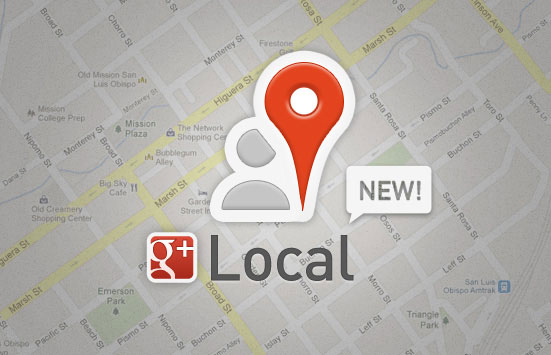
I started my blog in 2006 after realizing that no one was looking at the issue of local search from the vantage point at the juncture of technology, marketing and the bricks and mortar SMB. I never started with the idea that local search would become my life and although I wrote something nearly every day it wasn’t until 2009 that I actually got my first consulting job and it was not until 2010 that local search consulting became a significant part of my income.
I started out doing local optimization for local businesses but have moved onto to doing training and consulting for firms that need to understand the many moving parts in local search. I do everything from troubleshooting Google’s products, training marketing firms exploring the local search space, assisting start-ups and helping large companies get their geo-local presences accurate.
2. You recently published your own survey which was designed to gather feedback from users of the new iPhone map application for iOS6. You stated that you did not believe the recent Apple maps issue was going to affect Apple sales, and in our view Apple must share a similar view as they went so far as publishing an apology on their home page which even recommended customers use rival solutions in the interim.
However, they certainly are facing some challenges. If you were heading up Apple’s cartography division, what recommendations would you make to the company on how they could improve the experience and application moving forwards?
I am not sure that I agree with the premise of the question. It assumes that Apple does not understand cartography and mapping. And that I have significant insights to provide to them. Assuming that Apple is stupid or just uneducated is a dangerous assumption. Taking potshots at funky maps is an easy target. Remember it was not that long ago that Google was losing whole towns.
Mapping is hard. Apple knows full well how hard mapping is and they knew full well that they were going to have difficulties coming into this. When they announced Apple Maps in June 2012 I can not imagine that they would blow that marketing opportunity by announcing that their new Maps product had a “few” problems. NO they went ahead and presented it as the most innovative mapping product ever. Whether it is remains to be seen but in some ways they are where Google with mapping was in 2008, in some ways ahead of that and in some ways behind it. But to assume that they need my advice is to ignore a lot.
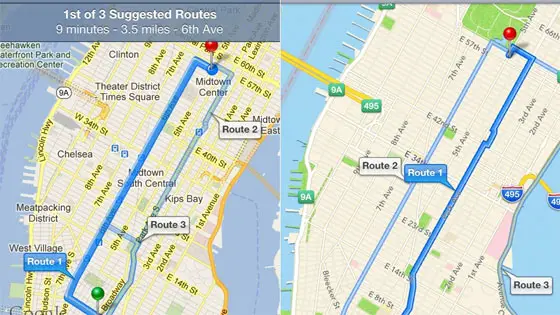
Apple has been a late starter in several industries that they ultimately succeeded in leading or developing a very strong market position. They came to the already existing MP3 player market with one device. Over the years as they developed the necessary skills they came to dominate that market. When they entered the phone business NO ONE thought that they could succeed. But their smart phone still sets the standard and has significant market share. They continue to grow their PC market share to a healthy position after being at death’s door in that market. So they know how to succeed as an underdog, how to build out the capacity AND knowledge, and plan for the appropriate growth when they enter an existing and competitive market.
Mapping is in some ways different but in many ways the same. It takes time to build up the institutional knowledge and the people necessary to compete head to head with the likes of Nokia/Navteq and Google. This knowledge can not be built over night and you can’t ramp up all the necessary efforts or staffing in one fell swoop.
Apple could have taken an easier way out of the mapping dilemma and their conflict with Google if they had partnered with TomTom or Mapquest, both of whom already had turn by turn apps working well on the iOS platform. They didn’t. Apple chose to go it alone. The real question that we need to ask (of Apple) is how much of the stack are they intending to own and of the parts that they don’t own, how are they going to get them up to the world class standards that they surely know that they need.
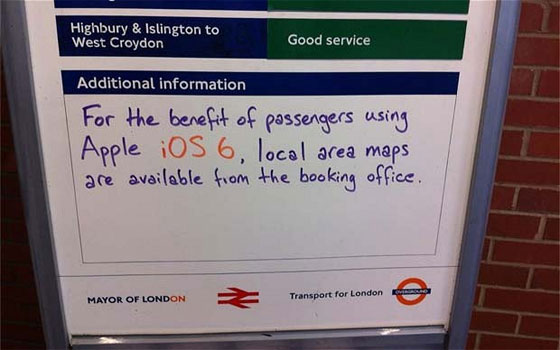
In choosing TeleAtlas, they chose a company with incredible underlying technology but limited resources. Apple has a history of making significant investments in their partners to gain a competitive advantage. By giving TeleAtlas access to the massive amounts of geo data generated by the iOS6 crowd Apple may just have provided TeleAtlas the information that both TeleAtlas and Apple need to compete.
We live in interesting times and Apple’s foray into Mapping promises to make it even more so.
3. Many bloggers and industry analysts tend to agree that the advent of smartphone-based GPS and mapping applications are going to present a real threat to the future of more traditional hardware based portable navigation manufacturers. In fact, on your blog you say the days of PND are numbered. Do you think there’s any way back now for companies such as Garmin and TomTom in terms of consumer navigation?
Mapping, like any industry that goes digital, has fallen prey to commoditization. The same problems I ran into as a retailer in 2001 virtually every other industry is now experiencing. The profitable middle markets are all gone. The mainstream car PND market is the primary example. The GPS companies are fighting a rear guard action in attempting to preserve what they can of it.
When the middle of a market goes away, the choice is to move to the niches or upstream to higher value or into a new market all together. All have higher costs and lower volume and may not generate the total revenues or profits that existed before. Its a painful transition and not many companies make it. Garmin has done a good job of moving into the niches of consumer PNDs i.e. sports, personal fitness etc. and into higher end areas like aviation and marine.
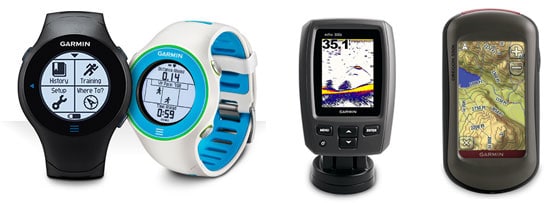
But even then there are threats and caps on growth. Apple and Android can also move into those markets. It is not a simple problem for either Garmin or TomTom.
4. Without wanting to be too controversial, you do seem have quite a few blog posts which are negative about TomTom. These range from their tactics around advertising their Lifetime maps promotion to them “using fear to sell maps”. Personally we loved reading these blog posts and agreed to some degree to many of the points you raised – but what we are now seeing with PND companies is they are starting to bundle free map updates into the purchase of the device – Garmin are currently doing this.
Do you think this new tactic of including map updates for free rather than asking the customer to pay for them will have a positive effect on PND sales decline?
The lower and middle ground of the market has all but disappeared. General purpose devices in the form of smart phones and free software dominate much of the territory that PNDs once occupied. And these general purpose devices have better user interfaces and sometimes better underlying data. With an ad supported model like Google or a hardware supported model like Apple, much of mapping becomes a commodity that is given away for free. I don’t see free map updates as anything but shuffling the deck chairs on the Titanic. Much like the low end of the camera world has been taken over by the likes of the iPhone and Android so has consumer mapping.

TomTom in their new relationship with Apple has an opportunity to build out world class mapping data that could very well stand up against the likes of Google and certainly NavTeq. This is a huge opportunity for them. What they do with that data is the question. Hopefully it won’t be used to defend dying legacy businesses but rather to enter new niche markets and higher end areas. The world needs reliable, thorough mapping data from someplace other than Google. Hopefully TomTom can fill that spot and figure out how to profit from it.
5. Do you have any predictions for the next couple of years of how the location based services and GPS industries are going to progress with new initiatives and developments? It would be very interesting to hear your views on how Google Local Search will be advancing in the future.
To me the most interesting development near term is Google’s work on interior mapping and building footprints. They just announced 25 million new building footprints in the U.S. from their flyover efforts. This is in addition to the many millions that they had before from flyovers, their MapMaker crowd sourcing efforts and Sketchup models.
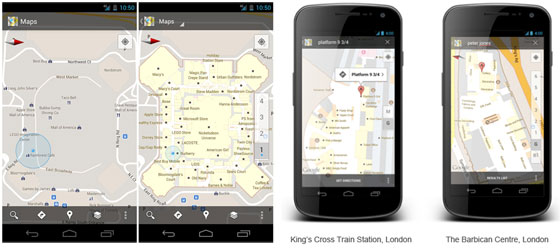
They also recently announced the completion of 10,000 interior maps and software to allow companies to create their own interior maps. This is a massive and very granular data set that allows for very precise geo location information. With the forthcoming improvements to GPS, IPS and the ever increasing number of smart phones Google will be able to know when a given user breaks the boundary of these footprints or nears the entrance of any given business.
This is a level of detail that has only been available on a very small scale. Google is doing this nationally and globally. The incredible marketing opportunities and the obvious privacy issues this brings up will make for very interesting opportunities and problems.
6. Do you have any forthcoming projects in the local search area which you can tell us about or any up and coming news that our readers might be interested in?
With David Mihm, Matt McGee, Mary Bowling and others we have created a training series to train small business, large corporations and marketing firms in how to take advantage of the opportunities in Local Search: It’s call Local University.
Want to Know More?

